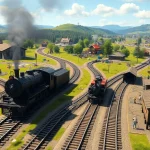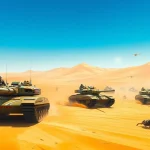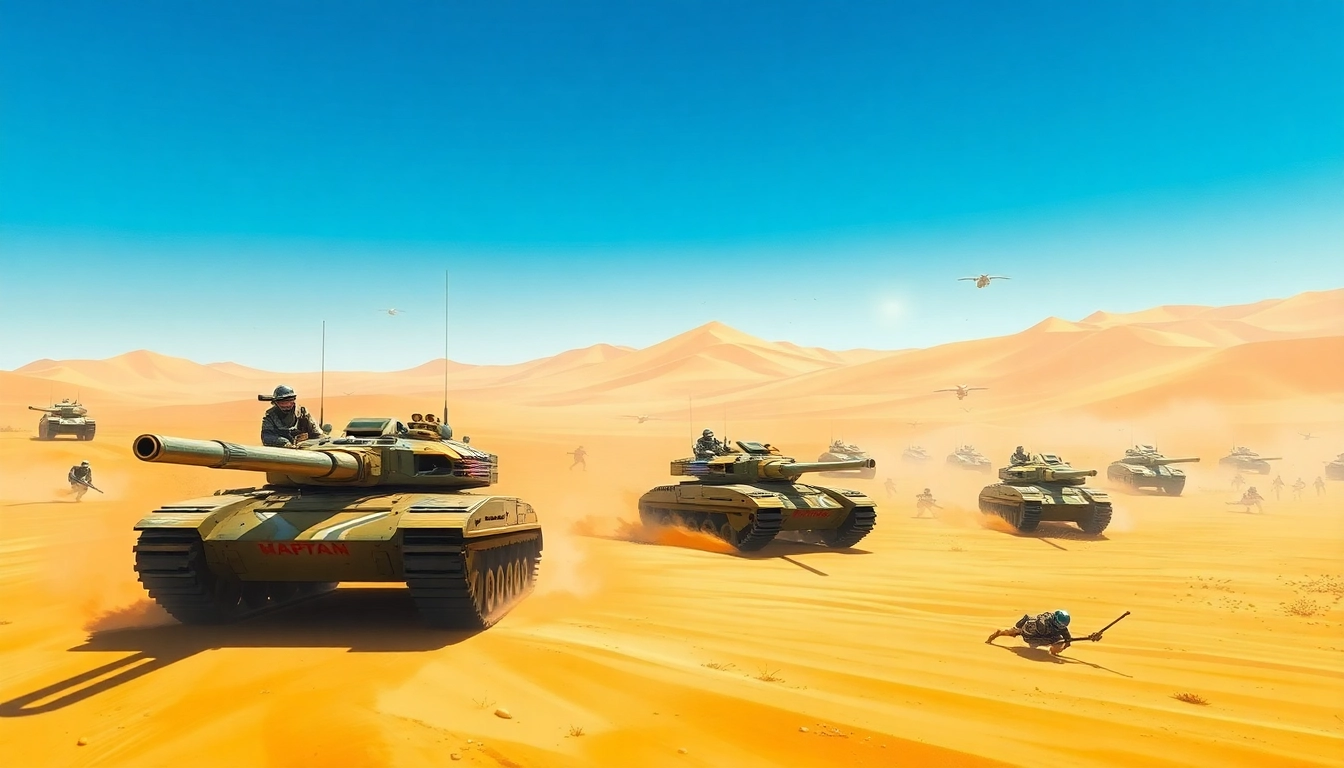Understanding Dune 2 Game Mechanics
Core Gameplay Features
The dune 2 game is often hailed as a pioneer in the real-time strategy genre, establishing many features that are now staples in modern games. Players are thrust into the arid, expansive universe of Arrakis, where they must navigate a complex web of resource management, base building, and tactical warfare. The game blends these elements seamlessly, allowing players to experience the thrill of combat while keeping an eye on the vital aspects of their empire.
One of the core gameplay features is the unit production system. Players gather resources to build various units that serve diverse combat roles, such as infantry, tanks, and aircraft. Additionally, the fog of war mechanic adds an element of suspense, as players must scout the terrain for enemy positions and resources while expanding their influence.
Build and Expand Your Base
Building a strong and efficient base is crucial for success in Dune 2. Players begin with a command center and must strategically expand their territory by creating additional structures, such as refineries, barracks, and factories. Each type of structure serves a specific function: refineries collect spice, the primary currency; barracks produce infantry units, and factories can churn out vehicles and advanced units.
Optimal base placement can lead to substantial advantages, especially concerning resource acquisition. Players should be aware of spice field locations as they determine the speed of their resource collection, ultimately impacting their ability to sustain military campaigns.
Resource Management Essentials
In Dune 2, resource management is a balancing act that can make or break a player’s strategy. Spice is not only the primary resource but also the lifeblood of your operations. Without a steady supply, players will struggle to maintain their armies and develop their base.
To become a master in resource management, players must understand spice extraction and the dynamics of the battlefield. Efficiently deploying harvesters while protecting them from enemy attacks or sandworms is essential. Furthermore, establishing a sound economic strategy involves planning for both immediate needs and long-term growth, emphasizing the importance of investing in upgrades and new technology.
Choosing Your Faction in Dune 2 Game
Overview of Factions
The game offers three distinctive factions, each with unique characteristics and gameplay styles: the Atreides, Harkonnen, and Ordos. The choice of faction can significantly influence the player’s strategy and overall experience.
The Atreides are known for their strong infantry and advanced technology. Their strengths include a better unit production rate and access to enhanced reconnaissance capabilities. The Harkonnen, on the other hand, possess powerful units but depend on a slower production rate, making them formidable foes but requiring patience and strategic foresight. Lastly, the Ordos specialize in subterfuge and can access powerful, albeit expensive, units, presenting a different type of challenge that heavily relies on deception.
Strengths and Weaknesses of Each Faction
Every faction brings a unique flavor to the battlefield in Dune 2. The Atreides are favored for their overall balance, often seen as the beginners’ choice. Their ability to field a diverse array of units quickly allows for a flexible response to enemy strategies. However, they may not pack the same punch as the Harkonnen, who excel in heavy firepower and can devastate enemy forces in head-on conflicts. Yet, their slow build rate can be a significant drawback if exploited by quicker opponents.
The Harkonnen’s strength lies in raw power and aggressive tactics. Still, their weaknesses, including a dependence on individual units’ performance and the risk of considerably high losses, can be exploited by clever adversaries. The Ordos, with their focus on strategy and subterfuge, can outmaneuver both factions, but they require a deep understanding of the game’s nuances to maximize their efficiency.
Faction-Specific Strategies
Each faction in Dune 2 requires a tailored approach to gameplay. For the Atreides, leveraging their reconnaissance capabilities can provide valuable intel on enemy movements, allowing for preemptive strikes and strategic planning. Players should focus on building a balanced army of infantry and vehicles, ensuring they can handle different threats.
Harkonnen players should capitalize on their powerful units to dominate through aggressive tactics. Utilizing overwhelming force can quickly dismantle enemy defenses; however, it’s recommended to ensure that reinforcements are available to back up initial assaults. Effective use of defenses such as turrets can also fortify a base while preparing for larger offensive strategies.
Ordos players should focus on inventiveness and adaptability. Given their unique technology and capability for deception, employing distraction tactics can bait opponents into making mistakes. This brings a heightened emphasis on mobility over brute force, enabling them to flank or ambush enemies and create opportunities for victory.
Advanced Strategies for Winning Battles
Effective Unit Compositions
Cultivating a strong army composition is vital for dominance in Dune 2, and it varies depending on the chosen faction and opponent’s strategy. Understanding the strengths and weaknesses of available units allows players to create formations that can respond to any battlefield scenario.
For instance, combining infantry units with missile vehicles offers both frontline security and ranged support, allowing players to adapt to sudden changes in conflict dynamics. Players should experiment with various combinations to discover what works best against different factions or compositions.
Utilizing Terrain to Your Advantage
The battlefield of Arrakis is laden with opportunities for tactical advantage. Players should familiarize themselves with different types of terrain, which can dramatically impact unit effectiveness. For instance, higher ground often means improved visibility and providing defensive bonuses, while dense foliage can conceal units from enemy detection.
Strategic positioning can lead to pivotal victories. Players should always be asking themselves how they can leverage terrain to ambush or slow a more considerable enemy force. Moreover, understanding the movement of sandworms and avoiding their paths can provide an additional layer of survivability and operational success.
Counter-Strategies Against Opponents
Developing counter-strategies is crucial when facing off against enemies. Players should analyze their opponents’ tactics early and adapt accordingly. If an adversary tends to deploy heavy armored units, using anti-tank vehicles or airstrikes can level the playing field.
Moreover, maintaining a mobile army allows players to respond to threats effectively, keeping opponents off-balance and unable to capitalize on early-game advantages. Establishing scouting units to monitor enemy movements fosters an understanding of the opponent’s army composition and offers insight into potential weaknesses that can be exploited.
Building a Competitive Dune 2 Game Community
Joining Online Forums and Communities
Engagement with the Dune 2 gaming community can illuminate myriad strategies and foster friendships. Various online platforms, such as forums and social media groups, serve as hotbeds for discussions that can enhance gameplay knowledge. Joining these communities allows players to share insights that would otherwise take months or years to unearth through trial and error.
Being active in these spaces also enables players to keep updated on the latest developments, strategies, and even mods that can enhance gameplay, ensuring they stay ahead of the competition. Effective communication often leads to collaboration and camaraderie, further enriching the overall gaming experience.
Participating in Tournaments
Taking part in tournaments is one of the most effective ways to improve as a player in Dune 2. These competitions not only provide valuable experience in high-pressure situations but also present opportunities to earn recognition within the community.
Preparation for tournaments involves practicing specific strategies that can be effective in competitive play, ensuring players bring their best game. Additionally, engagement with others in these tournaments can expand one’s understanding of different play styles and tactics, nurturing growth and skill acquisition.
Sharing Tips and Tricks with Fellow Players
Contributing to the community by sharing strategies, tips, and insights enhances the gameplay experience for everyone involved. Whether through writing articles, creating video tutorials, or simply engaging in discussions, players benefit from a collective pool of knowledge.
Moreover, the act of teaching others can reinforce one’s understanding of concepts and foster a broader skill set. This communal sharing leads to continuous improvement and innovation, propelling the entire community toward excellence.
Tracking Your Progress in Dune 2 Game
Performance Metrics to Measure
In the competitive environment of Dune 2, tracking progress offers players insights into their strengths and weaknesses. Performance metrics—such as win-loss ratios, average resource collection rate, and army composition efficiency—can provide a well-rounded view of a player’s capabilities.
Using statistics, players can identify patterns in their gameplay, allowing them to focus on areas needing improvement. Leveraging third-party tools or in-game stats can aid in breaking down these performance nuances for a better understanding of strategic efficacy.
Setting and Achieving Game Goals
Setting clear, achievable goals can significantly enhance the gameplay experience in Dune 2. Players should establish both short-term targets, such as mastering a specific unit composition, and long-term aspirations, like improving competitive rankings.
By establishing a roadmap and milestones, individuals can create a structured framework for their gaming strategy, leading to improved performance and more rewarding experiences as they tick off goals met along the way.
Learning from Defeats to Improve
Defeats can be valuable teachers in the world of Dune 2. Reflecting on losses can reveal pivotal moments that might not have seemed significant during gameplay but had substantial implications for the outcome. Players who engage in post-game analysis can pinpoint tactical errors, missed opportunities, or ineffective strategies that led to the downfall.
By turning a loss into a learning opportunity, players can adapt their strategies and methodologies to prevent similar pitfalls in future matches, ultimately cultivating a cycle of continuous improvement and mastery in the Dune 2 gaming arena.









